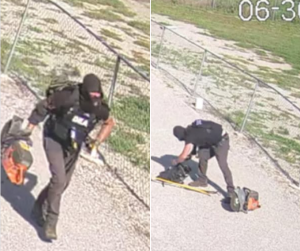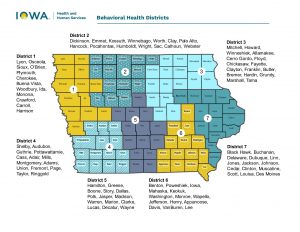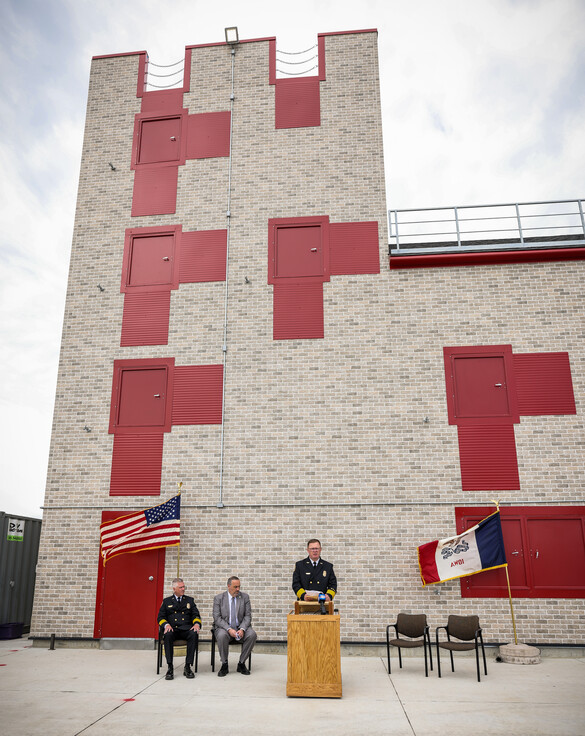DES MOINES, Iowa (Iowa Capital Dispatch) — Iowa drivers will be more likely to get pulled over after today (July 1st), if they are behind the wheel with their cellphones in their hands. The new law is one of many passed by the Iowa Legislature during the 2025 session that begins now (July).
Senate File 22 bans the use of cellphones and electronic devices when not in voice activated or hands-free mode while operating a vehicle. Police officers will begin pulling over distracted drivers and charging them with a warning starting July 1. Come January 2026, offenders will be charged with a simple misdemeanor, punishable by a fine between $100 and $850.
Here are 10 more laws that create additional criminal penalties or expand the definition of previous crimes that go into effect today:
Driving with an open-container THC beverage
House File 181 prohibits open-container beverages containing THC in the passenger area of motor vehicles. People are allowed to transport open-beverage THC drinks in the trunk of their vehicles but if it’s anywhere else in the car, and they risk being charged with a simple misdemeanor punishable by a $260 fine.
Gift card fraud
Senate File 260 creates a graduated penalty for altering or tampering with a gift card with intent to defraud. Under the new law, a violator commits forgery and is guilty of different charges based on the fraudulent amount or value of goods purchased with a fraudulent card. The crime is a class C felony if more than $5,000 is uploaded to a card or obtained in stolen goods; a class D felony if the fraudulent value is between $5,000 and $1,000; an aggravated misdemeanor if the fraudulent value is between $1,000 and $500, and a serious misdemeanor if the fraudulent value is under $500.
Additionally, the value of retail merchandise fraudulently obtained within a six-month period will be aggregated and the defendant will be charged for the total amount.

The rotunda in Iowa Capitol as seen May 8, 2025. (Photo by Robin Opsahl/Iowa Capital Dispatch)
Critical infrastructure sabotage
House File 879 expands the definition of “critical infrastructure sabotage” to include a telecommunications service, information service or cable service, a wireless service or broadband generation, transmission or delivery service. Individuals found guilty of willfully impairing critical infrastructure are guilty of a class B felony punishable by up to 25 years in prison and a fine between $85,000 and $100,000.
Grooming
House File 180 defines grooming as an attempt to persuade a minor to commit an unlawful sexual act, punishable as a class D felony. Individuals found guilty will be classified as tier 1 sex offenders. Those convicted are subject to 10 years in prison, with possibility of parole. This law explicitly includes law enforcement sting operations within the statute, meaning even if the intended victim is an undercover police officer, individuals can be prosecuted for grooming.
Distribution of obscene material to a minor
Under House File 306, people age 18 or older who knowingly share or exhibit obscene material to a minor, other than the parents or guardian of the minor, are guilty of a public offense.
Upon first offense, violators will be charged with a serious misdemeanor and subject to up to one year in jail and/or $430-2,560 in fines. A second offense is an aggravated misdemeanor and subject to a minimum mandatory confinement of one year which will not be deferred or suspended. Following a third offense, individuals are charged with a class D felony with a mandatory minimum sentence of three years.
Minor-to-minor distribution of obscene material is also considered a public offense and individuals under 18 found guilty will be charged with a serious misdemeanor.
Assault on a health care provider
House File 310 expands the definition of health care providers to protect against assault. Anyone working, volunteering or participating in an educational course at a hospital or rural emergency hospital or nursing home is now protected under this law.
Persons found guilty of assaulting a health care provider under the new definition can be charged based on the severity of the assault ranging from serious misdemeanor to a class “C” felony based on the severity.
Human trafficking
House File 649 expands the definition of human trafficking. Someone who attempts to purchase services like commercial sexual activity from a law enforcement professional posing as a trafficker commits a class “D” felony.
The bill also expanded the definition of “services” to no longer require an “ongoing relationship” between the person who requests unlawful services and the victim. The new definition is performing activities under the supervision of or for the benefit of another, including commercial sexual activity and sexually explicit performances.
The new definition of “victim” now includes all of the following: a person subjected to human trafficking, a person identified as being subjected or targeted for human trafficking and a law enforcement official impersonating a human trafficking victim. A class D felony is punishable by up to 5 years in prison and a fine ranging between $750 and $7,500.
Possession of visual depictions of minor engaged in unlawful sex act
Senate File 150 ensures persons in possession of visual depictions containing pictorial representations of a minor engaging in a prohibited sexual act, including altered or edited pictures, of different minors will be punished with separate offenses for each “pictorial representation.” Multiple depictions of the same minor engaging in a prohibited sexual act will now be prosecuted as separate offenses for each representation. A person guilty of this offense will be charged with a class “D” felony for a first offense, and a class C felony for subsequent offenses.
Assault on law enforcement professional
Senate File 397 expands penalties for assault on persons engaged in certain professions. Under this bill, assault against a peace officer, jailer, correctional or juvenile detention staff, or employee of the Department of Inspections, Appeals and Licensing who conducts investigations or inspections, is punishable up to a class C felony. All individuals found guilty of assault on these protected professions must serve a minimum term of seven days.
Additionally, the definition of assault has been expanded to include contact with saliva through tossing, spitting or throwing.
Firearm possession by felons
Senate File 462 significantly increases penalties for firearm possession by felons for repeat offenders. First-time offenders face a class D felony with a mandatory minimum sentence of two years; second-time offenders would face a class D felony with a mandatory minimum sentence of four years; third-time offenders would face a class C felony with a seven-year mandatory minimum sentence and fourth or subsequent offenses would face a 10-year sentence recommendation. The bill prevents courts from deferring or suspending sentences, except for first-time offenders with a county attorney recommendation.













